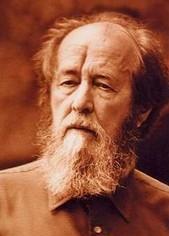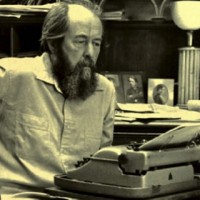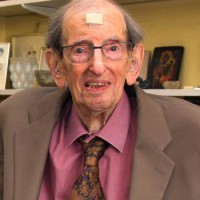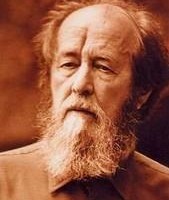Solzhenitsyn: The Courage to be a Christian, by Joseph Pearce.
In these dark days in which the power of secular fundamentalism appears to be on the rise and in which religious freedom seems to be imperiled, it is easy for Christians to become despondent. The clouds of radical relativism seem to obscure the light of objective truth and it can be difficult to discern any silver lining to help us illumine the future with hope.
In such gloomy times the example of the martyrs can be encouraging. Those who laid down their lives for Christ and His Church in worse times than ours are beacons of light, dispelling the darkness with their baptism of blood. “Upon such sacrifices,” King Lear tells his soon to be martyred daughter Cordelia, “The gods themselves throw incense.”
It is said that the blood of the martyrs is the seed of the Church and, if this is so, more bloody seed has been sown in the past century than in any of the bloody centuries that preceded it. Tens of millions have been slaughtered on the blood-soaked altars of national and international socialism in Europe, China, Cambodia and elsewhere. Today, in many parts of the world, millions upon millions are being slaughtered in the womb in the name of “reproductive rights.”
In such a meretricious age the giant figure of Alexander Solzhenitsyn emerges as a colossus of courage. Born in Russia in 1918, only months after the secular fundamentalists had swept to power in the Bolshevik Revolution, Solzhenitsyn was brainwashed by a state education system which taught him that socialism was just and that religion was the enemy of the people. Like most of his school friends, he enslaved himself to the zeitgeist, became an atheist and joined the communist party.
Serving in the Soviet army on the Eastern Front during the Second World War he witnessed cold blooded murder and the raping of women and children as the Red Army took its “revenge” on the Germans. Disillusioned, he committed the indiscretion of criticizing the Soviet leader Josef Stalin and was imprisoned for eight years as a political dissident.
While in prison, he resolved to expose the horrors of the Soviet system. Shortly after his release, during a period of compulsory exile in Kazakhstan, he was diagnosed with a malignant cancer in its advanced stages and was not expected to live. In the face of what appeared to be impending death, he converted to Christianity and was astonished by what he considered to be a miraculous recovery.
Throughout the 1960s Solzhenitsyn published three novels exposing the secularist tyranny of the Soviet Union and received the Nobel Prize for Literature in 1970. Following the publication in 1973 of his seminal work, The Gulag Archipelago, an exposé of the treatment of political dissidents in the Soviet prison system, he was arrested and expelled from the Soviet Union, thereafter living the life of an exile in Switzerland and the United States. He finally returned to Russia in 1994, after the collapse of the Soviet system.
In 1978, Solzhenitsyn caused great controversy when he criticized the secularism and hedonism of the West in his famous commencement address at Harvard University. Condemning the nations of the so-called free West for being morally bankrupt, he urged that it was time “to defend not so much human rights as human obligations.”
Read the complete article in Crisis Magazine
Eric Hobsbawm, 1917-2012, by Roger Kimball
In the annals of moral idiocy, the Marxist British historian Eric Hobsbawm, who died yesterday at 95, will ever enjoy a conspicuous place. A gifted and prolific writer, the Egyptian-born Hobsbawm was utterly absorbed by the ideology that fired his youthful dreams of utopia. How he must have savored the fact that he was born in 1917, the year of the Bolshevist revolution in Russia which ushered in so much poverty, misery, terror, and freedom-blighting totalitarian oppression. “The dream of the October Revolution is still there somewhere inside me,” Hobsbawm wrote in his memoir Interesting Times in 2002, “I have abandoned, nay, rejected it, but it has not been obliterated. To this day, I notice myself treating the memory and tradition of the USSR with an indulgence and tenderness.”
Indeed. Hobsbawm was adulated by an academic establishment inured to celebrating partisans of totalitarian regimes so long as they are identifiably left-wing totalitarian regimes. Although he claimed to have been victim of a “weaker McCarthyism” that retard advancement of leftists in the UK, Hobsbawm enjoyed a stellar career replete with official honors, preferments, and perquisites. He was showered with honors and academic appointments at home and abroad. His books won all manner of awards. In 1998 he was appointed to the Order of the Companions of Honor. But the central fact about Hobsbawm, as about so many doctrinaire leftists, was his willingness to barter real people for imaginary social progress. If he “abandoned, nay rejected” the “dream” of the October Revolution, he never abandoned its animating core: an almost reflexive willingness to sacrifice innocent lives for the sake of a spurious ideal.
The philosopher David Stove once identified “bloodthirstyness” as the motivating force of Communism and its offshoots. Scratch a socialist and you discover a fondness for the gulag. This describes Hobsbawm to a T. In 1994, the venerable historian discussed the former Soviet Union with a television interviewer. What Hobsbawm’s position comes down to, the interviewer suggested, “is saying that had the radiant tomorrow actually been created, the loss of fifteen, twenty million people might have been justified?” Hobsbawm: “Yes.”
Aleksandr Solzenicyn e il cammino dell’”io” alla verità, di Giovanna Parravicini.
 Vedendo tutta Mosca riscuotersi dal grigio torpore e accalcarsi intorno alle edicole per strappare una copia di «quella rivista dov’è scritta la verità» (nel novembre 1962 il prestigioso mensile Novyj mir pubblicava Una giornata di Ivan Denisovic, il primo racconto sui lager), giustamente Sergej Averincev osservava: «Questa ormai non è più solo storia della letteratura – è storia della Russia». La grande letteratura russa, del resto, non si è mai concepita solo come un fenomeno letterario, si è sempre sentita investita di una vocazione morale e pedagogica nel senso più elevato della parola, e così è sempre stata recepita dai suoi lettori, che potevano recitare senza esitazioni, come preghiere, accanto ai salmi le poesie del Dottor Zivago.
Vedendo tutta Mosca riscuotersi dal grigio torpore e accalcarsi intorno alle edicole per strappare una copia di «quella rivista dov’è scritta la verità» (nel novembre 1962 il prestigioso mensile Novyj mir pubblicava Una giornata di Ivan Denisovic, il primo racconto sui lager), giustamente Sergej Averincev osservava: «Questa ormai non è più solo storia della letteratura – è storia della Russia». La grande letteratura russa, del resto, non si è mai concepita solo come un fenomeno letterario, si è sempre sentita investita di una vocazione morale e pedagogica nel senso più elevato della parola, e così è sempre stata recepita dai suoi lettori, che potevano recitare senza esitazioni, come preghiere, accanto ai salmi le poesie del Dottor Zivago.
Il romanzo incompiuto di Solzenicyn Ama la rivoluzione!, finora inedito in Italia ma pubblicato ora dalla milanese Jaca Book, per la cura di Sergio Rapetti, a oltre cinquant’anni dalla sua composizione, ripropone questa grande lezione registrando, sullo sfondo del gigantesco dramma della seconda guerra mondiale, lo svolgersi di un altro dramma: il faticoso ma inarrestabile cammino dell’«io» umano verso la scoperta della verità, passando dagli slogan altisonanti e vacui dell’utopia («La vita era bellissima. In primo luogo perché era sottomessa alla volontà di Nerzin che poteva disporne a suo piacimento [...]. Era cresciuto nella convinzione che ogni uomo debba forgiare da sé il proprio destino»), al terreno aspro e accidentato, ma solido, della realtà («[…] quello sguardo di migliaia, inflessibile, cupamente testardo ma che senz’altro racchiudeva un segreto, un segreto senza il quale sarebbe stato impossibile vivere»). È il cammino percorso da un intero popolo, di cui Solženicyn ha sempre avvertito la responsabilità di custodire la memoria e la coscienza, e insieme il suo stesso cammino personale, tracciato attraverso la figura del protagonista, Gleb Nerzin (lo stesso nome prenderà il protagonista nel successivo, maturo romanzo Il primo cerchio).
Ama la rivoluzione!, presentato alla Biblioteca Ambrosiana l’8 marzo scorso alla presenza di Ignat Solženicyn, uno dei figli dello scrittore, narra la vicenda di un giovane intellettuale sorpreso dallo scoppio della guerra nelle aule universitarie di Mosca, impaziente di combattere in prima linea per aggiudicare alla patria la vittoria finale e portare la rivoluzione in tutto il mondo, ma costretto – in quanto riformato alla visita medica – a una poco esaltante marcia verso le retrovie in un reparto di salmeria («il contingente degli invalidi»).
È un’opera profondamente autobiografica, scritta da Solženicyn nel 1948 mentre era internato in un campo di lavoro per scienziati, la saraska di Marfino, fortunosamente messa per iscritto (a differenza di altre opere dello stesso periodo, in particolare il poema La stradina, 8mila versi serbati per anni dall’autore nella memoria), e salvata da una coraggiosa funzionaria del lager che gliel’avrebbe restituita sei anni dopo. Un’opera in cui l’autore fissa il mutamento che sta avvenendo in lui, intellettuale comunista e brillante ufficiale arrestato durante la guerra, costretto dalle circostanze a rivedere tutte le proprie convinzioni.
L’ingloriosa marcia di Gleb, che cerca disperatamente, lungo tutta la narrazione, di mutarne la rotta per inseguire i suoi ideali, è in realtà il percorso della vita, che si incarica, per Nerzin come per Solzenicyn, di liberare l’intellettuale entusiasta, confidente nel «giovane paese dalla rossa bandiera», dalle sue utopistiche convinzioni. È un processo liberatorio che avviene secondo un duplice registro: il tribunale della storia e il tribunale della coscienza qui si uniscono per ricondurre la persona a se stessa. A questo conduce lo scontro di Nerzin con la burocrazia, la miopia e gli interessi individuali che soppiantano nel sistema i luminosi ideali del socialismo e, più in generale, ogni idea di giustizia e di bene comune («viveva e soffriva il tracollo sempre più evidente dell’Armata Rossa come la malattia mortale di un congiunto… A quale scopo vivere se ciò che di più luminoso era apparso nella storia dell’umanità veniva soffocato?»); a questo conduce il suo scontro con l’atrocità delle repressioni, della vita ai lavori forzati e in deportazione attraverso i racconti dei nuovi vicini di casa, i Diomidov, che squarciano un velo su una realtà apparentemente remota ma in realtà così prossima da sfiorare il protagonista e la moglie.
Read complete article in La Bussola Quotidiana


